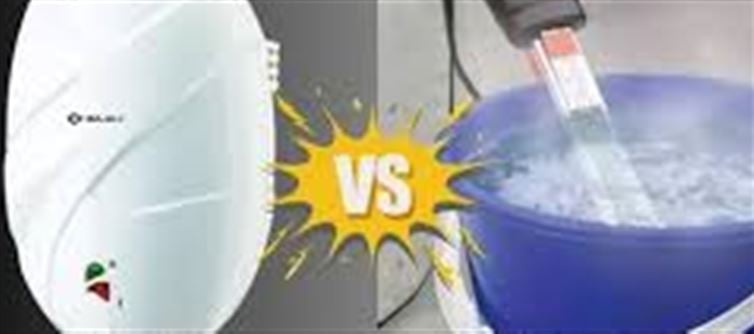
As winter sets in, hot water becomes a household necessity, but many struggle to decide whether to invest in a geyser or an immersion rod. Both have their advantages, but one can help you save significantly on electricity bills. Here’s a breakdown to help you choose.
⚡ 1. Energy Consumption: Who Wins?
· Geysers: Use a heating element enclosed in a tank, consuming electricity to maintain water temperature even when not in use.
· Immersion Rods: Heat water directly in the vessel only when needed, consuming less energy for short-term use.
· Verdict: For small quantities of hot water, immersion rods are more energy-efficient. Geysers are better for continuous or multiple-use hot water needs.
💧 2. Heating Speed
· Geysers: Take 10–20 minutes to heat a full tank, depending on capacity and water volume.
· Immersion Rods: Heat water quickly, often within 5–10 minutes for small containers.
· Tip: For instant hot water, immersion rods are faster and ideal for a single tap or bucket bath.
🏠 3. Usage Convenience
· Geysers: Provide ready-to-use hot water, often with temperature control and multiple outlets in homes.
· Immersion Rods: Require manual immersion in a bucket or container, less convenient for families or large households.
· Verdict: Geysers are better for family use, immersion rods suit individual or occasional use.
💸 4. Cost Factor
· Geysers: Higher initial cost, plus slightly higher electricity consumption over time.
· Immersion Rods: Low upfront cost and cheaper to operate for short-term use.
· Tip: If budget-conscious and using hot water sparingly, immersion rods can save both money and energy.
🌟 5. Safety & Longevity
· Geysers: Installed professionally, safer with built-in thermostats, and usually last 5–10 years.
· Immersion Rods: Risk of electric shocks if misused; always unplug and avoid touching water while heating.
· Verdict: Geysers are safer for regular use, immersion rods require careful handling.
🌈 In Summary
· Immersion rods: Ideal for quick, low-cost heating, saving electricity for small water needs.
· Geysers: Best for consistent, family-friendly hot water, though slightly more power-intensive.
· Key Tip: Evaluate your daily hot water requirement, household size, and electricity budget before making a choice.
Disclaimer:
The views and opinions expressed in this article are those of the author and do not necessarily reflect the official policy or position of any agency, organization, employer, or company. All information provided is for general informational purposes only. While every effort has been made to ensure accuracy, we make no representations or warranties of any kind, express or implied, about the completeness, reliability, or suitability of the information contained herein. Readers are advised to verify facts and seek professional advice where necessary. Any reliance placed on such information is strictly at the reader’s own risk..jpg)




 click and follow Indiaherald WhatsApp channel
click and follow Indiaherald WhatsApp channel